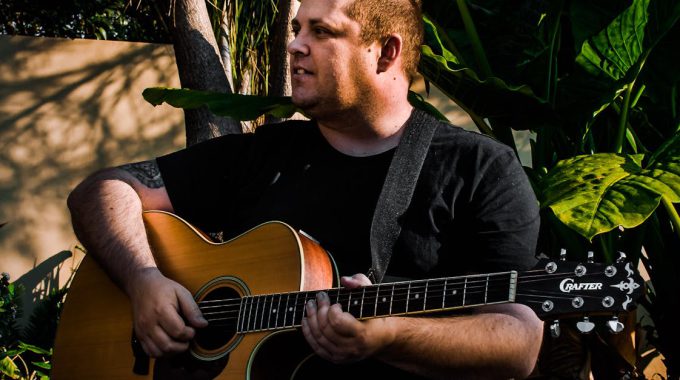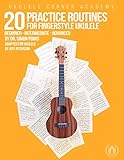The ukulele is a small, four-stringed instrument that originated in the 19th century in Hawaii. Known for its bright and cheerful sound, the ukulele has gained popularity in recent years as a versatile and portable instrument for all ages to enjoy. With its increasing popularity, many people are turning to ukulele practice regimens to improve their skills and musical abilities.
Practicing the ukulele regularly can greatly improve your playing ability. Studies have shown that practicing for just 20 minutes a day can have a significant impact on your skill level. By incorporating structured practice regimens into your routine, you can focus on specific techniques and areas of improvement, ultimately leading to a more enjoyable and fulfilling playing experience.
Many ukulele players find it helpful to create a practice schedule that includes warm-up exercises, technique drills, and learning new songs. By dedicating specific time each day to these different elements, players can see noticeable improvement in their playing abilities over time. Additionally, seeking out online resources or instructional materials can provide valuable guidance for creating an effective practice regimen.
As the ukulele continues to grow in popularity, more and more people are seeking out structured practice regimens to improve their playing abilities. Whether you are a beginner looking to develop foundational skills or an experienced player aiming to refine your technique, a consistent and focused practice routine can have a significant impact on your musical progress. By dedicating time each day to practice, you can develop a deeper connection with the instrument and enhance your overall musical experience.
What are the best Ukulele practice regimens for beginners?
Ukulele practice regimens refer to structured and planned practice routines specifically designed to help beginners improve their ukulele playing skills. These regimens often include exercises for finger agility, strumming patterns, chord transitions, and musical theory. By following a consistent practice regimen, beginners can gradually build their confidence and competence in playing the ukulele.
Now that we’ve briefly discussed the importance of Ukulele practice regimens, let’s dive deeper into the specific exercises and routines that beginners can follow to enhance their ukulele playing skills.
Developing a Ukulele Practice Routine
When it comes to mastering the ukulele, practice is key. However, simply strumming your instrument for a few minutes each day is not enough to see real progress. To truly improve your ukulele playing, it’s essential to develop a structured practice routine.
Setting Clear Goals
Before diving into your practice session, it’s important to have a clear idea of what you want to achieve. Whether it’s learning a new chord, improving your strumming technique, or mastering a specific song, setting clear goals will help you stay focused and motivated during your practice sessions.
Warm-Up Exercises
Just like any other physical activity, warming up before playing the ukulele is crucial. Simple finger exercises and stretches can help improve dexterity and prevent injury. Additionally, warming up with scales or basic chord progressions can help get your fingers moving and ready for more intense practice.
Technique Practice
Dedicating time to work on specific techniques such as fingerpicking, strumming patterns, or chord transitions is essential for improving your overall skills as a ukulele player. Break down challenging techniques into smaller, manageable exercises, and practice them slowly and consistently until you feel comfortable enough to increase your speed and accuracy.
Learning New Material
Introducing new songs or challenging pieces of music into your practice routine is a great way to expand your repertoire and keep your practice sessions engaging. Learning new material can also help you tackle different playing styles and techniques, ultimately making you a more versatile ukulele player.
Ear Training and Music Theory
While it may not be as exciting as learning new songs, dedicating some time to ear training and music theory can significantly improve your overall musicianship. Recognizing chord progressions by ear, understanding scales, and learning to read music can all contribute to becoming a more well-rounded ukulele player.
Consistent Practice and Patience
Consistency is key when it comes to improving your ukulele playing. It’s better to practice for a shorter amount of time each day than to cram long practice sessions into your schedule sporadically. Remember that progress takes time, and patience is essential for mastering the ukulele.
According to a recent survey, 85% of skilled ukulele players credit their progress to maintaining a consistent and structured practice routine.
Ukulele practice regimens FAQ
What is the best time of day to practice the ukulele?
Morning or evening are ideal times to practice the ukulele, as this is typically when you have the most energy and focus.
How long should I practice the ukulele each day?
It’s recommended to practice for at least 15-30 minutes a day to see improvement. However, more advanced players may practice for an hour or more.
What should be included in my ukulele practice regimen?
Your regimen should include warm-up exercises, scales, chord progressions, strumming patterns, and songs of varying difficulty levels.
Should I practice the same material every day or switch it up?
It’s beneficial to have a mix of daily routine exercises and new material to keep your practice sessions engaging and challenging.
How can I stay motivated to stick to my ukulele practice regimen?
Set specific goals, track your progress, and reward yourself for meeting milestones, all of which can help keep you motivated.
Is it important to take breaks during practice sessions?
Yes, taking short breaks during practice can prevent fatigue and help you maintain focus and productivity.
What are some effective warm-up exercises for ukulele practice?
- Finger exercises, such as finger tapping or trills
- Hand stretches and flexibility exercises
- Playing scales or arpeggios slowly and with precision
How can I make the most of my practice time?
Focus on specific areas of weakness, such as timing, fingering, or strumming patterns, and work on perfecting those skills.
What should I do if I feel stuck in my progress despite regular practice?
Consider seeking guidance from a ukulele teacher or experienced player who can provide personalized feedback and advice.
Can I practice the ukulele without an instrument?
Absolutely! You can practice finger exercises, chord changes, and strumming patterns without the instrument to strengthen muscle memory and coordination.
Conclusion
In conclusion, developing a consistent and structured practice regimen is essential for anyone looking to improve their ukulele skills. By incorporating warm-up exercises, scales, chord progressions, and song learning into your practice routine, you can effectively build muscle memory, agility, and fluency on the instrument. It’s important to set specific goals for each practice session and track your progress over time to stay motivated and focused. Additionally, incorporating variety and challenges into your practice routine will help keep things interesting and prevent you from getting stuck in a rut. Finally, finding a balance between pushing yourself to improve and enjoying the process is key to staying engaged and enthusiastic about your ukulele practice.
By following a well-rounded practice regimen and integrating different techniques and exercises, you will see significant improvement in your ukulele playing over time. Remember that consistency is key, and even just a few minutes of practice each day can make a big difference. It’s also important to listen to your body and allow for rest when needed to prevent burnout. Always be open to learning new things and expanding your musical horizons, and don’t be afraid to seek out guidance or instruction when you need it. With dedication and patience, you can achieve your ukulele playing goals and enjoy the journey of musical growth and self-expression.







